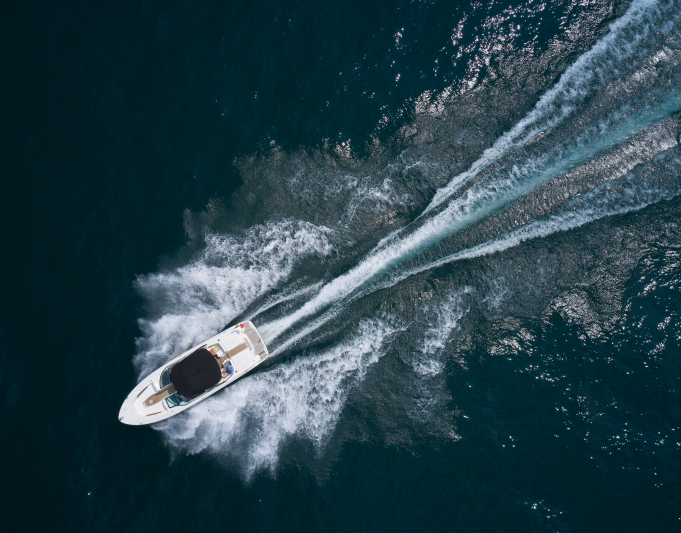First Steps After a Boating Accident
Experiencing a boating accident can be overwhelming. Victims of boating accidents should follow these steps immediately to make make the process easier down the road:
- Seek Medical Attention: Pursue immediate medical care for any injuries, even if they seem minor. Follow your doctor’s instructions and keep thorough records of all medical treatments.
- Document the Scene: Take clear photos of any visible injuries and the accident scene, including any damages. Collect contact information and statements from witnesses.
- File a Report: Report the accident to local authorities and obtain a copy of the official accident report. This document will be vital for the success of your case.
- Contact a Lawyer: Contact a Lawrenceville boating accident attorney from our firm for professional legal guidance. We will help you navigate the claims process and work to secure the compensation you deserve.
- Avoid Social Media: Refrain from discussing the accident or your injuries on social media. Keeping your posts private can prevent misinterpretation by insurance companies, which can damage your case.
- Handle Insurance Carefully: Avoid accepting quick settlement offers from insurance companies without consulting with a lawyer. Be cautious when communicating with insurance companies to avoid jeopardizing your claim.
- Preserve and Organize Evidence: Keep all records related to medical treatments, repair estimates, and insurance communications. Document any ongoing costs, pain, and impacts on your daily life.
- Follow Legal and Medical Guidance: Adhere to the advice from both your medical professionals and your attorney. Keep your lawyer updated on your medical status and any changes to your situation.

Deadlines to File a Georgia Boat Accident Claim
In Georgia, the statute of limitations for filing a boat accident claim is generally two years from the date of the accident, which means you cannot pursue legal action or seek compensation for your injuries and damages after that deadline. Delaying could result in losing your right to file a claim or diminishing the strength of your case.
Contacting a lawyer from our firm as soon as possible after the accident is vital for making sure your rights are protected.
An experienced attorney from our firm can help you understand your options, gather necessary evidence, and take timely action to meet all legal deadlines.
Gathering Evidence After Being Involved in an Accident
Collecting the right evidence quickly is essential for building a strong case. Here’s what you should gather:
- Police Report: Secure a copy of the official accident report. It details the incident, involved parties, and any citations issued, which are critical for establishing facts.
- Medical Records: To document the extent of your injuries, obtain all records related to your treatment, including hospital notes, diagnostic tests, and prescriptions.
- Witness Statements: Get contact information and statements from anyone who witnessed the accident. Their perspectives can corroborate your version of the events.
- Photo/Video Evidence: Capture images and videos of the accident scene, your injuries, and any damages. This visual evidence will help illustrate the impact and severity of the accident, and may help establish fault.
- Accident Scene Details: If possible, document the scene with measurements or notes on conditions and environmental factors right away, before any changes occur.
- Insurance Information: Gather details of all insurance policies involved, including those of any other parties and your own. You’ll need all of this information to file claims and negotiate settlements.
- Correspondence Records: Keep copies of all communications related to the accident, including emails, letters, and phone records, to track the progress of your claim.
- Employment Documentation: Collect records from your employer about missed workdays and lost wages if your injuries have impacted your ability to work.
Managing these tasks can be challenging, especially if you are recovering from an injury.
Let our team handle the evidence collection so you can focus on healing.
What Can I Expect to Pay?
At our firm, we use a contingency fee model, meaning you pay nothing upfront. We only collect a fee if we win your case.
Our fee is a percentage of the compensation you receive. This approach ensures that our interests are aligned with yours, and allows you to focus on your recovery without worrying about legal fees.
Additionally, we will discuss any costs incurred during the case in advance, so you won’t be blindsided by unexpected court fees or expert witness expenses.
Why Choose Us Over Other Lawrenceville Boat Accident Attorneys?
When it comes to handling boat accident cases, our firm stands out for several reasons:
- We combine in-depth legal expertise with a personal touch, ensuring that every client feels heard and supported.
- Unlike many firms, we prioritize clear communication while we work tirelessly to secure the best possible outcome for you.
- Our team is dedicated to fighting for your rights and managing the complexities of your case with compassion and commitment.
With the Brauns Law Firm, you’re not just a case number—you’re a valued client who deserves personalized attention and relentless advocacy.
General Information on Boating Accidents in Georgia
Boating accidents in Georgia include a range of incidents from minor collisions to major accidents that cause serious injuries. The state’s regulations and laws determine how these accidents are handled, impacting everything from insurance claims to legal responsibilities.
Overview of Georgia Boating Laws
Georgia has a wide variety of boating rules and regulations you should know about before you get out on the water. Here is an overview of some of the most important ones:
Boater Age Restrictions
Anyone aged 15 or under cannot operate a marine vessel more than 16 feet long, and children under 12 may operate smaller vessels when accompanied by a competent adult.
Children aged 12 to 15 can operate vessels less than 16 feet long if they have passed a boater education course or are accompanied by a competent adult. Those aged 16 and older may operate any vessel as long as they have passed boater education courses and keep proper identification onboard.
Registration Requirements
Georgia boat owners must register all vessels with the state, except for sailboats less than 12 feet long, canoes and other small vessels with no mechanical propulsion, and vessels operated exclusively in private bodies of water. Boaters must have a Georgia Certificate of Boat Registration and validation decals at all times to operate legally in public waters.
Personal Flotation Devices
Georgia law requires all vessels to be equipped with enough personal flotation devices (PFDs) in good condition for each person aboard.
Boating Under the Influence
Boaters cannot operate any marine vessel while under the influence of alcohol or drugs.
It is important to note that anyone under 21 years of age is considered under the influence if their blood alcohol level is 0.02 percent or more. Those 21 and older are considered under the influence with blood alcohol levels of 0.08 percent or more or if they test positive for drugs.
Boating “Rules of the Road”
Boat operators must slow to idling speed any time their vessel comes within 100 feet of another vessel, dock, pier, bridge, shoreline, or person in the water. Boaters are also expected to pass oncoming vessels on the right and keep to the right-hand side in narrow spaces, just as they would when driving a car.
When Should I File a Lawrenceville Boating Accident Report?
Under federal boating laws, owners and operators of marine vessels are required to file boating accident reports any time their vessels are involved in accidents that result in:
- The death of a person
- An injury that requires more than basic first aid
- The disappearance of a person from the vessel
- $2,000 or more in property damage
- The destruction of a vessel
Reports should be submitted to Georgia reporting authorities within 48 hours if a boating accident results in death, disappearance, or serious injury.
Common Injuries Sustained That We See
When boat operators neglect their responsibilities under Georgia law, boating accidents happen. Unfortunately, these crashes often result in serious injuries such as the following:
- Head injuries
- Back and neck injuries
- Abdominal and internal injuries
- Spinal cord injuries
- Partial or total paralysis
- Non-fatal and fatal drownings
- Propeller or tow rope entanglement injuries
- Electric shocks or electrocution
- Bruises, lacerations, and puncture wounds
- Dislocated or broken bones
- Soft tissue strains, sprains, and tears
- Amputations and loss of limb
- Facial injuries and dental trauma
- Permanent scarring and disfigurement
- Post-traumatic stress disorder (PTSD)
- Other emotional and psychological injuries
What Are The Most Common Types Of Boating Accidents?
Boating accidents can vary widely in type and severity, but some of the most frequent types include:
- Jet Ski Collisions: Accidents involving personal watercraft like jet skis often occur due to high speeds or reckless operation.
- Collisions with Watercraft: Crashes involving motorboats, yachts, or other vessels can result from navigation errors or poor visibility.
- Intoxicated Boat Operation: Accidents occur when operators are under the influence of alcohol or drugs, which leads to impaired judgment and lack of control.
- Water Skiing Accidents: Injuries that occur during water skiing frequently include falls or collisions with boats or other objects.
- Boat-to-Boat Collisions: Collisions between boats can happen due to speeding, poor communication, or other navigational issues.
- Accidents Involving Swimmers: Injuries to swimmers can occur if they are struck by boats or personal watercraft, which is often due to lack of visibility or awareness.
- Drowning & Hypothermia: Fatalities or severe injuries can result from falling overboard, and are sometimes exacerbated by cold water conditions.
- Fires & Explosions: Incidents involving fires or explosions on board may lead to burns or other severe injuries.
- Falls: Accidents involving falls overboard or onboard the boat can result in injuries like fractures or concussions.
- Physical Injuries: Wide-ranging physical injuries including cuts, bruises, broken bones, concussions, traumatic brain injuries (TBI), and amputations can result from various boating accidents.
Each type of accident can have specific causes and consequences, so it’s important to gather the details of your unique situation and seek appropriate legal help.
No matter the cause of your accident, we offer expert legal representation to help you move forward. Contact us today for a free consultation
Why Do Boating Accidents Happen?
Boating accidents in Georgia, including Lawrenceville, are monitored by various agencies, which provide some notable figures:
- In 2021, Georgia recorded 114 boating accidents, resulting in 67 injuries and 14 deaths.
- According to the latest data from the U.S. Coast Guard, there were 16 boating-related fatalities, 101 accidents, and 58 injuries in Georgia in 2023.
- For more detailed statistics, the Georgia Department of Natural Resources offers comprehensive annual reports on boating safety.
Common causes include:
- Operator Distraction: Many accidents occur because the boat operator’s attention is diverted, or they are not fully focused, making operator distraction a leading factor in boating incidents in Georgia.
- Lack of Experience: Operators who are not adequately trained or experienced significantly increase the likelihood of accidents.
- High Speed: Excessive speed can increase the risk of collisions by reducing a boat operator’s ability to maneuver. Speeding is a widespread issue on Georgia’s waterways.
- Adverse Weather: Boating in poor weather conditions, such as storms or high winds, can lead to accidents. It’s important to check weather conditions before heading out on the water.
- Mechanical Issues: Failures in equipment or machinery, such as engine problems or malfunctioning safety gear, can result in accidents. Regular maintenance is essential to ensure vessel safety.
Other Locations We Serve
Our team is dedicated to ensuring that individuals in the communities we serve receive the expert guidance and representation they need.
Below are the locations where we offer our services:
- Atlanta
- Cumming
- Decatur
- Duluth
- Gwinnett County



















